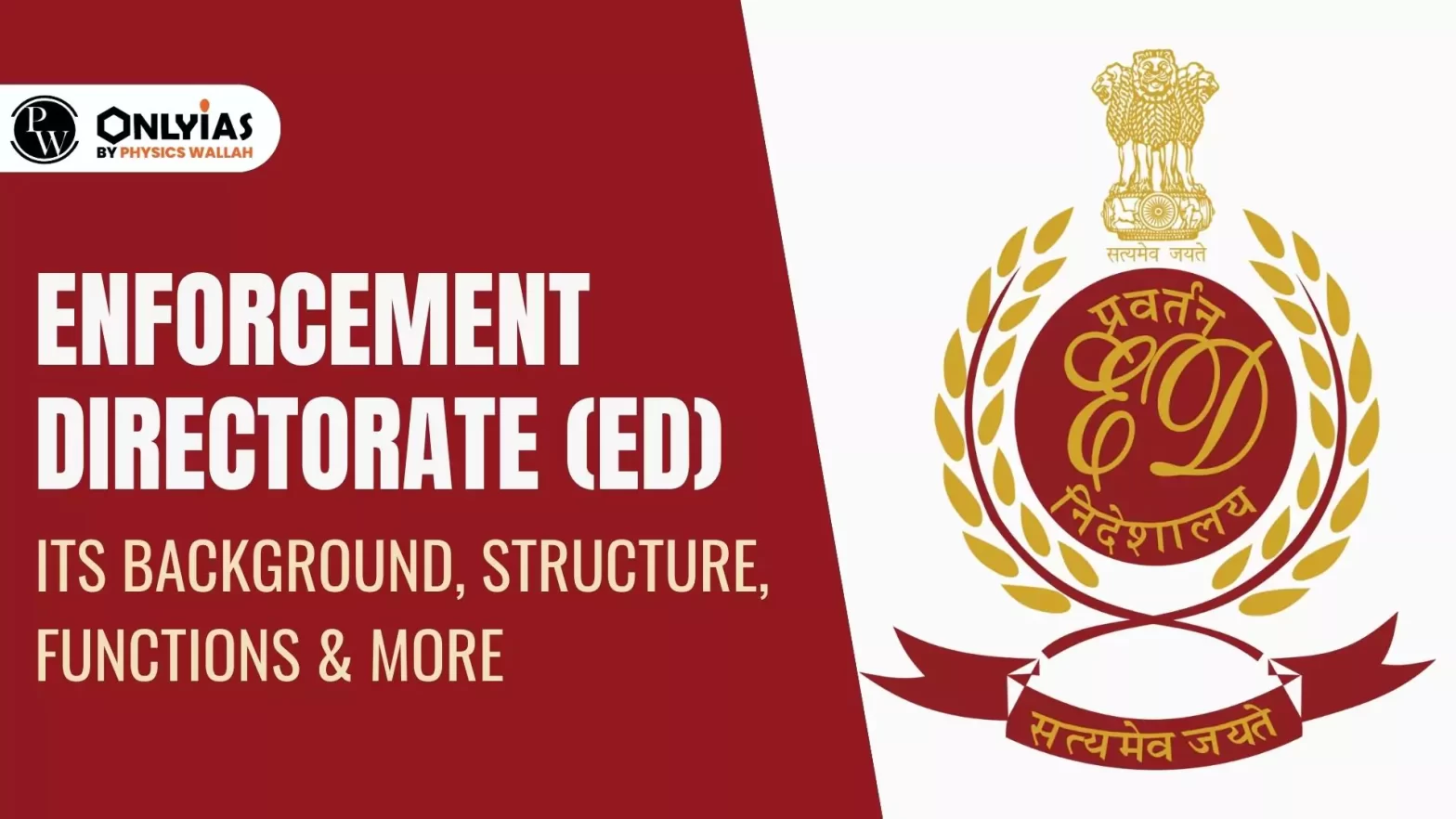Understand the Enforcement Directorate. Discover its role, functions, and importance in combating financial crimes and money laundering.

| Statutory Provisions | Role of the Enforcement Directorate (ED) |
| The Prevention of Money Laundering Act, 2002 (PMLA): |
|
| The Foreign Exchange Management Act, 1999 (FEMA): |
|
| The Fugitive Economic Offenders Act, 2018 (FEOA): |
|
| Sponsoring agency under COFEPOSA: |
|
| Feature | Central Bureau of Investigation (CBI) | Enforcement Directorate (ED) |
| Establishment |
|
|
| Jurisdiction |
|
|
| Functional Areas |
|
|
| Parent Body |
|
|
| Scope of Authority |
|
|
| Head of Organisation |
|
|
| Investigative Power |
|
|
| Types of Cases Registered |
|
|
| Scope of Investigations/ Areas of Work |
|
|
| Must Read | |
| NCERT Notes For UPSC | UPSC Daily Current Affairs |
| UPSC Blogs | UPSC Daily Editorials |
| Daily Current Affairs Quiz | Daily Main Answer Writing |
| UPSC Mains Previous Year Papers | UPSC Test Series 2024 |
The origin of the Enforcement Directorate goes back to 1st May 1956, when an ‘Enforcement Unit’ was formed in the Department of Economic Affairs
The Enforcement Directorate is a part of the Department of Revenue under the Ministry of Finance.
It is responsible for fighting economic crimes and enforcement of FEMA (Foreign Exchange Management Act, 1999) and PMLA (Prevention of Money Laundering Act, 2002
The ED director is appointed as per provisions of the Central Vigilance Commission Act, 2003 The Centre appoints the director on the recommendation of a committee, with the Central Vigilance Commissioner as chairperson * Other committee members are secretaries in the Finance (Revenue), Home, and Personnel & Training ministries The tenure should be "not less than two years," and any transfer has to be sanctioned by the appointing committee.
<div class="new-fform">
</div>